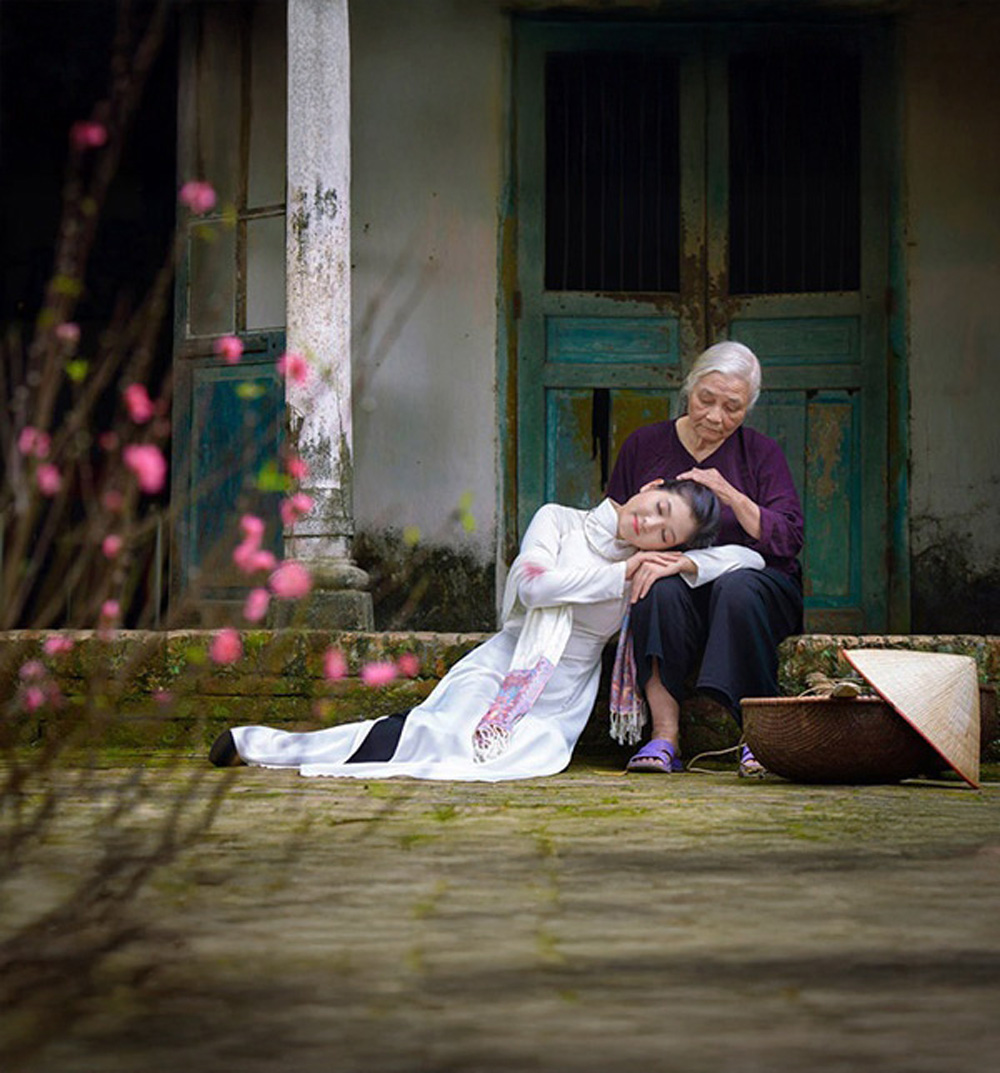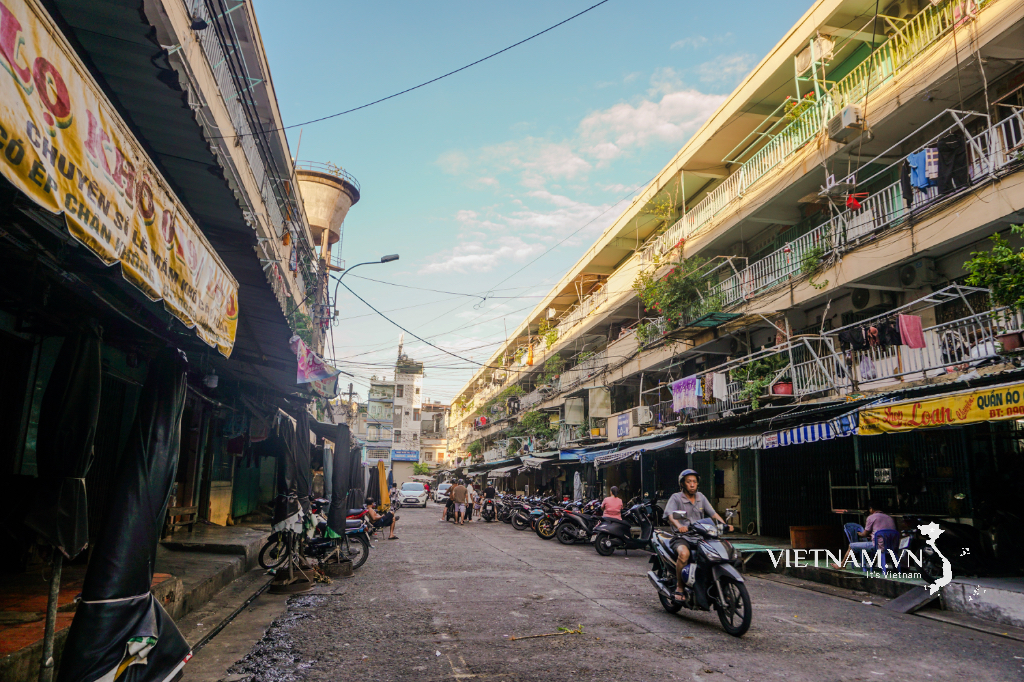White threads that endure through rain and sunshine.
The walking stick slowly leads the way.
Mother leaned on the fragile thread of time.
We didn't have time to visit this spring.
The train was crowded during Tet (Vietnamese New Year), and the children were too young.
Missing their mother, the children often remind each other of her.
Her voice still calls from afar.
I know Mom is pacing back and forth anxiously at this hour.
The neighbor is bustling with springtime joy.
Even with poor eyesight, my mother still keeps the brightest part on display.
Even though it's a small ray of light in front of the house
Spring comes and goes.
Young silk threads cannot turn my mother's hair green.
All the sunshine is focused on the eldest child.
How much love do I have for my grandchild to become a grandmother?
A mother's youth is only a fraction of what she longs for.
On a part of the walking stick, it goes in and out.
TRAN QUANG QUY
 |
Comment:
Poet Tran Quang Quy has many beautiful and haunting poems about his mother and the countryside where he was born and raised, filled with love and gratitude. I am still very impressed by the line he wrote: "Does Mother harvest the field, or does the field harvest Mother?" His poetry is beautiful in such paradoxical situations. March is springtime, with a day dedicated to women, to mothers. The poem "Springtime at Mother's Place" is a rather subtle poetic discovery. Spring is usually the season of budding and blossoming nature, while mothers grow older and more frail, but in the poet's perspective and feelings, he recognizes a persistent vitality, a springtime energy that has revived from his mother.
"Springtime at Mother's Place" begins with: "Mother's hair is white as white clouds, her age gone / White strands reaching to the very end of rain and sunshine." He doesn't speak of the end of the years, the passage of time according to its laws, but rather "to the very end of rain and sunshine." This represents the end of the hardships and struggles of a mother's life. The image of the mother with white hair and a walking stick in the springtime setting is haunting and evokes many associations in a situation where: "This spring we haven't had time to visit" when "The Tet train is crowded, the children are too young." This poem, written in 1984, reminds us of a difficult time for the country after the war and the arduous period of the subsidized economy. It is this dire situation, where the children's voices, "still calling from afar," awaken in the poet's mind the image: "Knowing that at this hour Mother is bustling in and out / The neighbors are busy in the springtime." The arrival of spring and Tet, the scenes of family reunions, are heartbreaking for the reader as the mother waits alone for her children far away.
The poem, unfolding like a slow-motion film, suddenly bursts forth with two truly beautiful and moving lines: “Even with failing eyesight, Mother still keeps the brightest spot / Though small, the light before the porch.” A condensed sentiment, a focal point of springtime vitality. That flickering light before the porch holds so much hope. The porch has steps where Mother often sits, chewing betel nut; the porch is where Mother sheltered herself from the sun and rain of her life. The lines are truly haunting and poignant.
The final stanza differs from the first three in that its six lines unfold a new space, a new mood, as the poet agonizes: "Spring comes and goes / The tender silk cannot make mother's hair green." A paradox, a truth, a reflection. It is this experience that allows the poet to proactively realize: "All the sunshine is concentrated on my child." Here, the sunshine is the warm sunshine of human affection; the mother accepts so much loss in order to wish for all the best for her child and grandchild: "So much love for the grandchild to become a grandmother." A silent, unassuming, yet profoundly noble sacrifice. The last two lines deeply convey the fragile yet overflowing vitality of the mother's youth, a love she cherishes and saves: "Mother is only young in a part of longing / In a part of the walking stick she uses." This is also the spring of the mother's life, the hope of her life, the small joy of her life. The poem begins with the image of a walking stick and ends with the same image, symbolizing the springtime of a mother's life. The poet emphasizes "a part" twice, not merely in terms of quantity, but as a transformative energy of quality. More than anyone else, in the hearts of every poet, every human being, there is the image of a mother, and understanding "the springtime in a mother's heart" is a priceless spiritual gift to her, filled with love and respect.
Source: https://baolamdong.vn/van-hoa-nghe-thuat/202503/mua-xuan-noi-me-c0466fc/



![[Photo] Golden season of organic farming under the canopy of the vast Mang Den forest.](/_next/image?url=https%3A%2F%2Fvphoto.vietnam.vn%2Fthumb%2F1200x675%2Fvietnam%2Fresource%2FIMAGE%2F2026%2F01%2F24%2F1769247398190_ndo_br_cam-15-jpg.webp&w=3840&q=75)






































































































Comment (0)